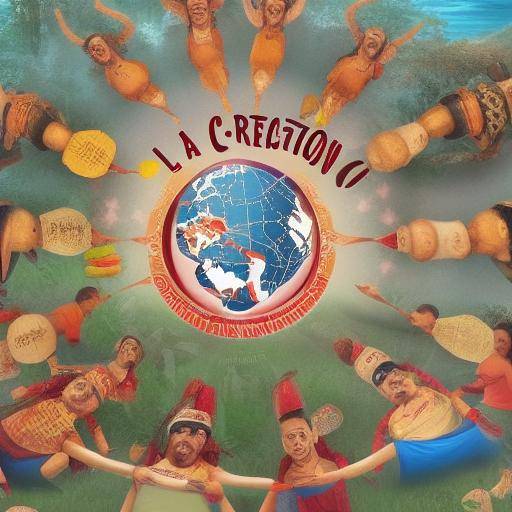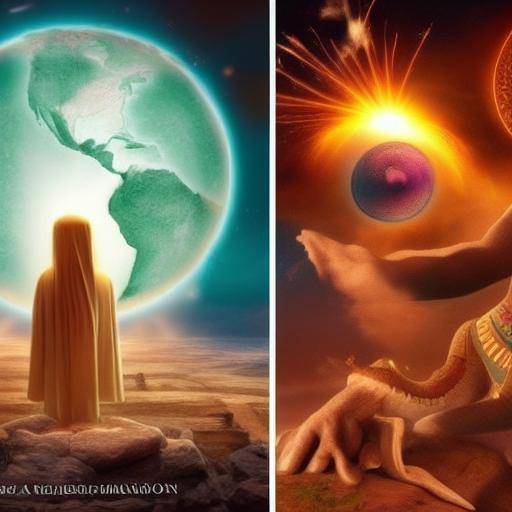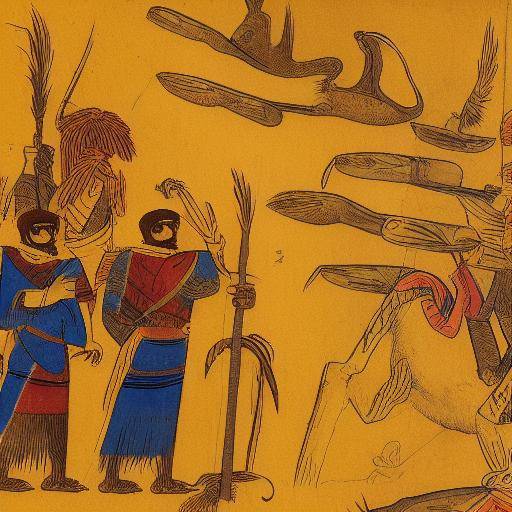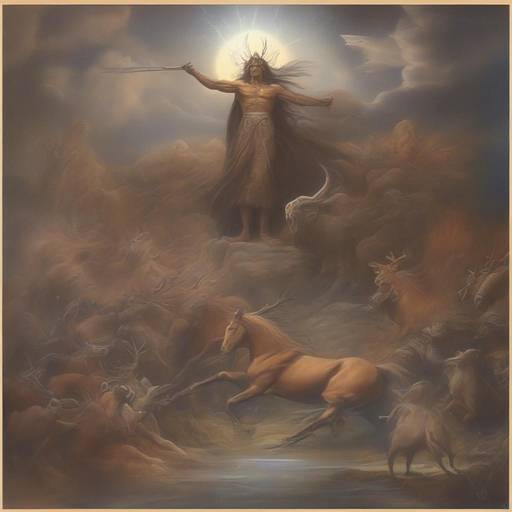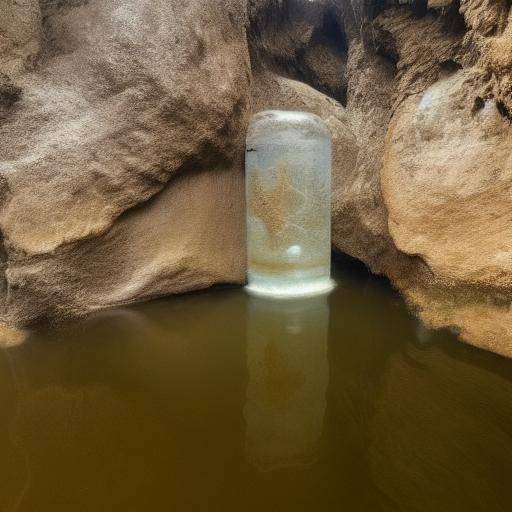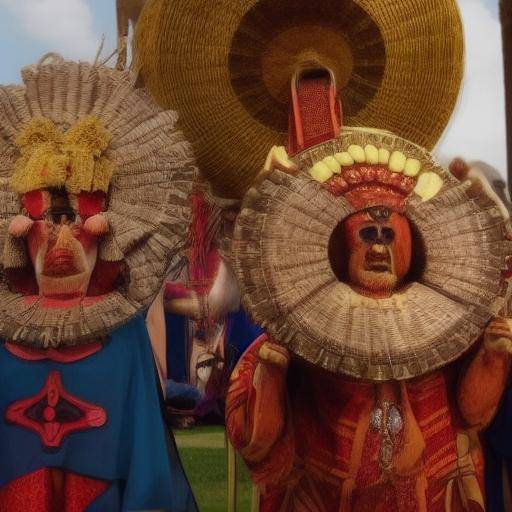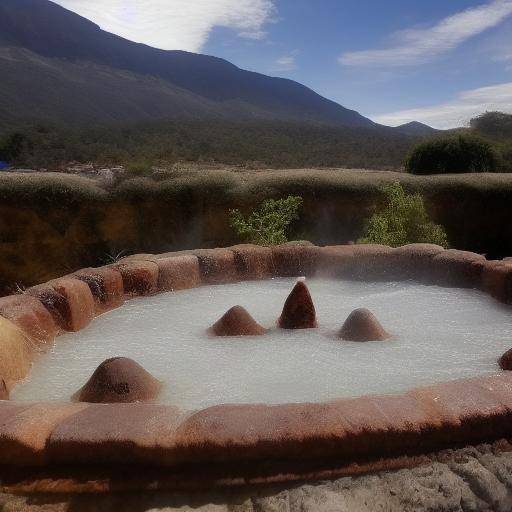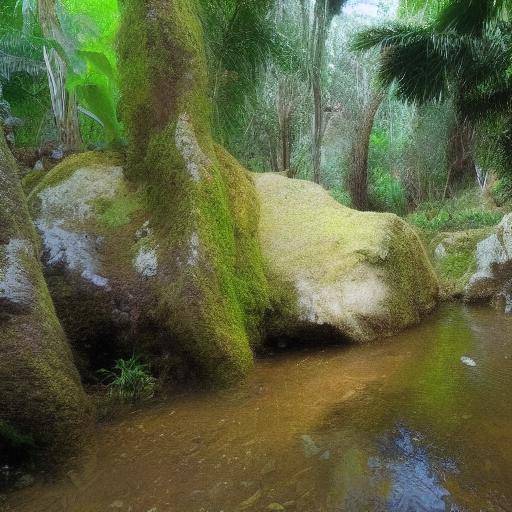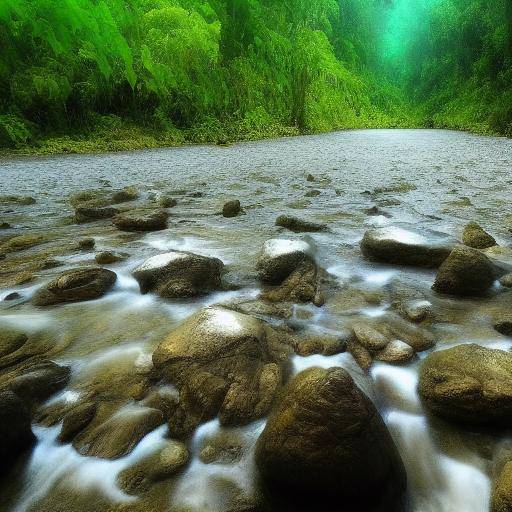
The spirits of water have been an integral part of native mythology in different cultures throughout history. These fascinating and mystical entities have played a significant role in the beliefs, traditions and practices of various communities around the world. In this article, we will explore the importance of the spirits of water in native mythology, its relevance today, and its impact on modern society.
Introduction
The spirits of water, mythical and supernatural beings associated with rivers, lakes, oceans and fountains, have been the subject of admiration, respect and fear in many cultures since time immemorial. His presence has been intertwined with stories, legends and rituals that reflect the profound connection between humanity and the vital element of water. Throughout history, these legends have served as teachings, artistic inspirations and spiritual foundations for countless generations.
In this article, we will explore the legends of the spirits of water, deepen their meaning in native mythology and analyze their influence in contemporary society. Join us on this journey to discover the magnificence and relevance of the spirits of water over time and today.
History and Background
Legends of the spirits of water have deep roots in the history of humanity. From ancient civilizations to contemporary indigenous cultures, water has been venerated as a sacred element and the spirits that inhabit it have been the object of worship and veneration.
Origins and Meaning
It is believed that the first references to the spirits of the water date back to the ancient civilizations that inhabited the banks of large rivers such as the Nile in Egypt, the Indo in the Indian subcontinent and the Yangtse in China. These cultures attributed divine powers to the water and to the beings who inhabited it, considering them guardians of life, fertility and natural balance.
Evolution and Transcendence
Over time, the legends of the spirits of water expanded throughout the world, acquiring nuances and variations of each culture. From the aquatic nymphs of Greek mythology to the deities of lakes in African traditions, the presence of these beings has endured through generations, adapting to different cosmogonies and beliefs.
Carnage and Key Moments
The influence of the spirits of water has been manifested in various milestones and key moments of history, inspiring literary, artistic and philosophical works. The water, and by extension, the spirits that personify it, has been a recurring symbol in different cultural manifestations, from poetry and music to sculpture and painting.
Anecdotes and Case Studies
Numerous anecdotes and stories transmitted from generation to generation reflect the profound importance that the spirits of water have had in the life of communities throughout history. These stories have served as vehicles to convey values, moral teachings and knowledge about the relationship between human beings and the natural environment.
Detailed Analysis
The legends of the spirits of the water continue to resonate today, keeping their validity and relevance in a modern world. Its influence extends beyond traditions and myths to impact everyday aspects and fundamental issues of contemporary society.
Benefits and Challenges
The presence of the spirits of water in native mythology provides a deep connection with nature and a sense of respect for the environment. However, it also poses challenges in terms of reconciliation between old beliefs and contemporary practices, especially in a context of climate change and deterioration of natural resources.
Perspectives and Views
The interpretations of the legends of the spirits of water vary according to the cultural, religious and philosophical influences of each region. The perspectives of experts in comparative mythology and anthropology offer valuable insights on how these beliefs continue to shape human attitudes and behaviors today.
Examples and Statistics
The impact of the mythology of the spirits of water can be seen in concrete cultural and social manifestations. Statistics on water conservation, ecology and resource management are intertwined with beliefs rooted in these legends, providing a framework for understanding their practical relevance in contemporary society.
Comprehensive review
Exploring the importance of the spirits of water in native mythology leads us to a deeper understanding of its meaning in different contexts and its impact on critical areas of modern life.
Applications and Best Practices
The integration of elements of the mythology of the spirits of water into contemporary practices, such as water management, sustainable architecture and environmental education, reveals its influence and relevance in the search for solutions to current challenges.
Opinions of Experts and Futures
The views and predictions of experts provide an overview of the evolution and projection of beliefs in the spirits of water in the context of increasingly conscious societies of the importance of sustainability and the preservation of the environment.
Comparison and Contrast
The comparative analysis of traditional and modern approaches in relation to beliefs in the spirits of water shed light on possible synergies and conflicts between ancestral conceptions and contemporary approaches to the nature and use of water.
Practical Tips and Accessible Recommendations
A deep understanding of the spirits of water and its importance in native mythology can be translated into concrete actions and guidance to address issues related to water and its preservation.
Water Conservation Guidelines
The teachings and values rooted in the legends of the spirits of water can serve as a basis for the promotion of individual and collective practices aimed at the conservation and sustainable use of water.
Step-by-Step Guides for Nature Connection
The symbolic wealth of the spirits of water can offer inspiration to those who seek to reconnect with nature and find a deeper sense of respect for the aquatic environment and its mythical inhabitants.
Justifications and Explanations Details
The backing of practices and recommendations with explanations based on myths and accounts of the spirits of water can have greater significance and acceptance in terms of dissemination and implementation.
Conclusions and FAQs
Conclusions
The legends of the spirits of water have transcended time and space, leaving a lasting mark on the cultures and consciences of mankind. Its importance in native mythology continues to resonate in today's society, offering valuable lessons and guidelines for the care of water and the preservation of life on Earth.
Frequently asked questions
- What is the role of the spirits of water in different cultures?
- How is the mythology of the spirits of water related to the conservation of the environment?
- What teachings can we draw from the legends of the spirits of water to apply in everyday life?
- What is the symbolic meaning of the spirits of water today?
- How do beliefs in water spirits influence attitudes and behaviour towards the environment?
- What aspects of water spirit mythology can be applied to sustainable water management in contemporary communities?
In short, the legends of the spirits of water represent an invaluable cultural legacy that offers perspectives on the relationship between human beings, water and nature. Its importance transcends the realm of the mythical, being a source of inspiration, reflection and guidance in the preservation of the environment and the vital balance of the Earth.



